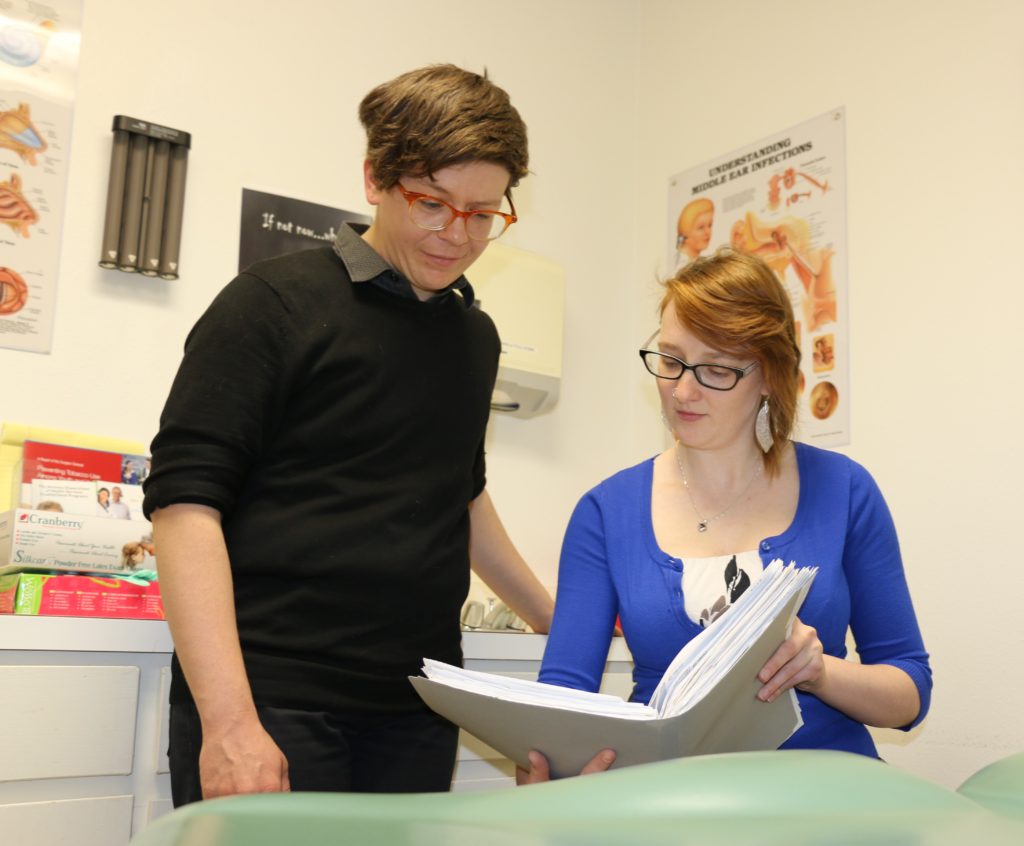A group of NAU undergraduate and graduate students teamed up with the Poore Medical Clinic to perform applied anthropological research in a class taught by Lisa Hardy, assistant professor of anthropology.
The blended medical anthropology course brought together students of diverse academic backgrounds to critically examine systems of medicine and health.
The primary class project involved a research partnership with the Poore Clinic, a non-profit organization that provides completely free healthcare to the uninsured individuals of Flagstaff and Coconino County.
Eric Walden, executive director of the Poore Medical Clinic, and Dr. Peter Weiser, the clinic’s board of directors president, provided direction for the students.
The student projects focused on three research areas.
- Volunteers: Students interviewed volunteer health providers to gauge their motivations and satisfaction with volunteering at the clinic. The group determined potential medical volunteers should be educated about the ease of volunteering at the clinic.
- Donors: Students gathered information through interviews and a web-based survey, uncovering findings that could increase future contributions. They found that individuals contribute because they want to support the community and because they believe in the mission of the Poore Medical Clinic.
- Patients: Basic records are kept on the clinic’s patients. The NAU students created an additional form to identify patients’ social and health challenges. If implemented, the data could be used to identify health inequities in Flagstaff and the county, possibly leading to improved care and social services.
The Poore Medical Clinic was an ideal setting to conduct research and supplement classroom learning, said Amanda Perz, a biomedical major. “The project also provided invaluable hands-on community action research for the students and increased our awareness of the systems of health in the community.”
“We hope that the Poore Clinic can use the outcomes and recommendations as a foundation from which to expand the reach of the mission to serve people in northern Arizona who need medical care,” said anthropology graduate student Margaret Nelson.



